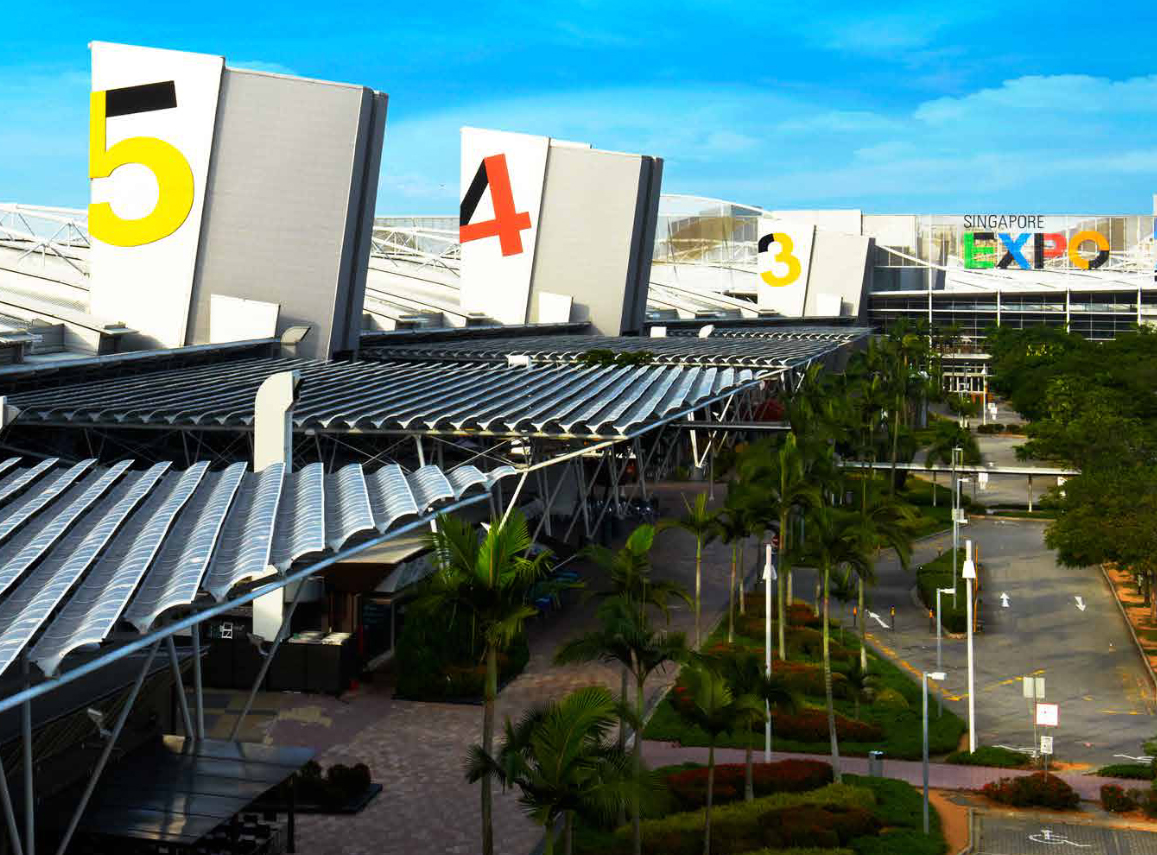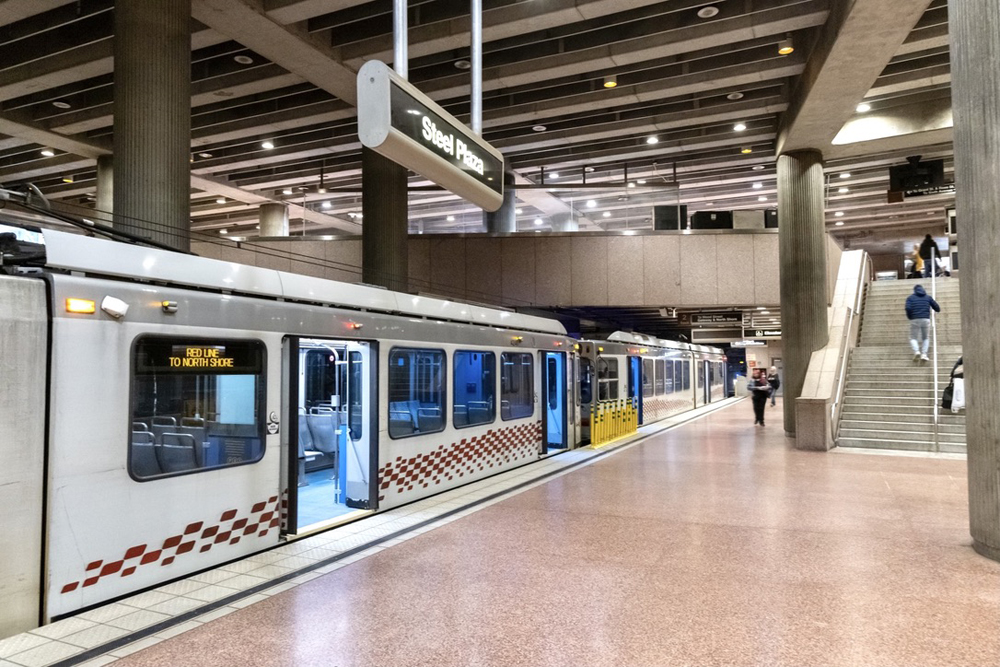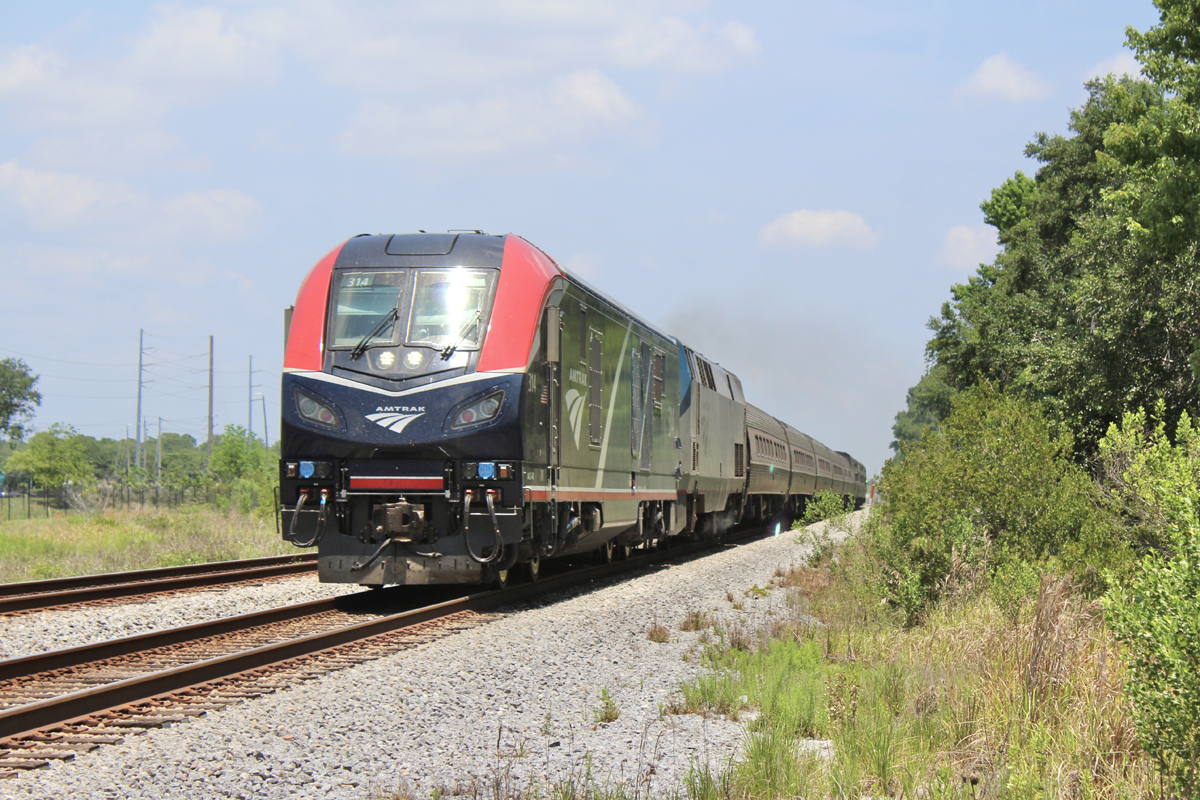MONTREAL — In response to Canada’s new speed restrictions on trains carrying hazardous material, Canadian National has issued an embargo on crude oil propane, and TIH (toxic inhalation hazard) materials.
In a notice to customers, the railroad says it will “continue to move these commodities, but manage the flow through a permit process from our centralized operations center.” The railroad said it was taking the move to “protect network fluidity.”
In the wake of a fiery derailment last week, Transport Minister Marc Garneau announced new rules restricting trains with 20 or more cars of hazardous materials to 20 mph in urban areas and 25 mph elsewhere. [See “Canadian government orders speed restrictions for trains with hazardous materials,” Trains News Wire, Feb. 6, 2020.] That order is in effect for 30 days.
CN’s statement to its customers said its move will “comply with the order while managing its significant impact on our operations and that of our customers carrying passengers.”















Question for IAN – How do jet engines from Europe or (I think) Massachusetts get delivered to Boeing in Washington State ??????
Ian, how did the parts for those ships, locos and fuselages get to the factories?
You didn’t ask about parts. But to answer your question about parts, locomotive fuel tanks, radiator cabinets and prime movers all get delivered to Erie by truck. Many ships get their fuel delivered by truck. IIRC, Spirit Aviation in Wichita still gets aluminum rolls delivered by rail.
Shippers and receivers in fabrication usually consult with each other on the logistics of getting stuff. The fun stuff happens when one of the channels melt down. As an example after the Union Pacific took over and merged the Southern Pacific into it. Then tried to run the SP the UP way. Spot rates on chemical traffic out of Houston went thru the roof. CH Robinson was offering over $5 a mile for some badly needed loads. After The Conrail breakup guess who came to the rescue, America’s truckers. At the company I drove for we did all kinds of crazy things for customers at the time.
Curt — that’s helpful, thanks.
Requiring Key trains to only go 25 on an already stuffed single-track mainline – where the track speed is nominally higher – will cripple operations.
While I understand the regulator’s point of view, they should also keep in mind the needs of railroad operations. If their decision makes the railroad inoperable, that is no good either.
CN probably thinks they have no choice, lest they melt down the whole CN network, and likely beyond, too.
Robert; they aren’t being refused per se – they are being “managed”. Basically CN is forbidding certain hazmat shipments from simply being waybilled at the customer’s discretion. Under the permit system; the shipper will apply for a permit number for each shipment and that number must then be shown on the waybill before CN will accept the billing.
All railroads have used this practice to manage congested areas of their networks for years.
What I believe CN hopes to achieve here is a better idea of what shipments are coming their way thus enabling them to better manage marshaling of these shipments into trains and avoid the speed restrictions.
I don’t know anything about Canadian law or regulations — BUT this seems like a good place for someone to succinctly explain what common carrier vs. private carrier status is in the US at least and whether and how these sorts of loads can be refused?
Invest in pipeline stocks.
Mr Bolsega, if your in San Francisco look at ocean going ships.
Or if your a railfan, 200 ton diesel locomotives.
Boeing 737 fuselages.
Meanwhile, back at the ranch….semi’s continue to blast down the interstate’s at 70 mph violating their speed restriction of 55 putting thousands of lives at stake every day….go figure.
Sounds like CN plans to use the embargo process to enable them to manage hazmat loads on line and keep the car counts to 19 or less on manifest trains. I’m curious how they plan to manage the residue empties.
This will certainly make it challenging for hazmat customers if CN plans to maintain this process long term.
Not an embargo. Embargo implies no shipment allowed. This is just a management change to cover CN’s tail.
Brought on by a private corporation not being able to keep its trains on the rails.
Oh, so there’s a consequence to government regulation? Who would have thunk it?
In response to Mr. Petit, an embargo does not necessarily mean or imply that that no shipments are allowed. It’s pretty common for embargoes to have a “permit” feature to allow a managed flow of the subject traffic.
To all the people bent on beating up truckers and truck lines: take a good look around you and tell me what didn’t come by truck.
@Gerald McFarlane, that appears to be the plan, but there probably are not enough trains to put them all on without doing wild things like putting them on hotshot intermodals. Plus that hardly works well for unit crude oil trains. CN will not want to make three trains out of one here, I’m sure.
Put a manned caboose on the rear to watch for anything derailment making!
Why not just limit those cars to a maximum of 19 per train, defeats the whole purpose of the restriction and you can still move the product, I’m sure CN has enough freights to be able to do that without gumming up the works.
In response to Bob Hoover’s question on common carrier obligations of U.S. railroad as to hazmat, see STB’s 2009 decision on UP’s attempt to limit handling of chlorine. It’s available at:
https://dcms-external.s3.amazonaws.com/MPD/62491/5E59A6C2D2A853A2852575D2004B8A7B/39995.pdf. as to UP
Steven Berg,same thing i was thinking and hauling hazardous materials too boot why don’t the DOT slow them down, and truckers don’t give me any bull about going slower than cars,trucking a 800 billion dollar industry why don’t you build your own Interstates or lanes.